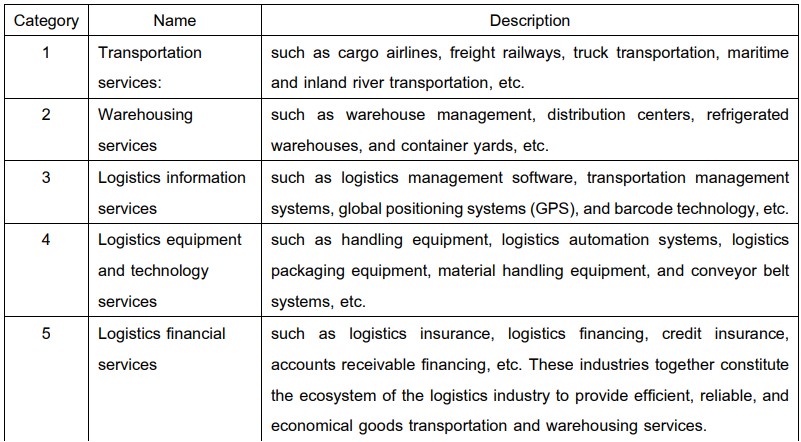Research on Basic Industry and Logistics Supply Chain Systems in India: Challenges, Opportunities and Development Strategies
Main Article Content
บทคัดย่อ
This article discusses the challenges and opportunities of basic industry and logistics supply chain systems in India, and proposes development strategies to address these issues. The study provides a comprehensive overview of the Indian industries, including its manufacturing sector and logistics infrastructure, and examines the challenges faced by the industry, such as problems of transportation networks, inefficiency issues of supply chains, and the coordination problems among stakeholders. Despite these challenges, the study highlights the opportunities for growth in the Indian logistics sector, including the potential for technological advancements and government initiatives to improve infrastructure. Finally, the study proposes strategies for developing a logistics supply chain system, including increasing investment in transportation infrastructure, implementing advanced logistics technologies, and improving coordination among industry stakeholders. Overall, this article aims to provide insightful points into the current state and future prospects in the basic industry and logistics supply chain systems in India.
Article Details

อนุญาตภายใต้เงื่อนไข Creative Commons Attribution-NonCommercial-NoDerivatives 4.0 International License.
บทความนี้ได้รับการเผยแพร่ภายใต้สัญญาอนุญาต Creative Commons Attribution-NonCommercial-NoDerivatives 4.0 International (CC BY-NC-ND 4.0) ซึ่งอนุญาตให้ผู้อื่นสามารถแชร์บทความได้โดยให้เครดิตผู้เขียนและห้ามนำไปใช้เพื่อการค้าหรือดัดแปลง หากต้องการใช้งานซ้ำในลักษณะอื่น ๆ หรือการเผยแพร่ซ้ำ จำเป็นต้องได้รับอนุญาตจากวารสารเอกสารอ้างอิง
Agrawal, S., Jamwal, A., & Gupta, S. (2020). Effect of COVID-19 on the Indian economy and supply chain. Preprints.org. Advance online publication. https://doi.org/10.20944/preprints202005.0148.v1.
Anitha, P., & Patil, M. M. (2018). A review on data analytics for supply chain management: A case study. I.J. Information Engineering and Electronic Business, 5, 30-39. doi: 10.5815/ijieeb.2018.05.05
Arvis, J. F., Saslavsky, D., Ojala, L., Shepherd, B., Busch, C., Raj, A., & Naula, T. (2016). Connecting to Compete 2016: Trade Logistics in the Global Economy--The Logistics Performance Index and Its Indicators. Washington, DC: World Bank. https://doi.org/10.1596/978-1-4648-0803-8. License: CC BY 3.0 IGO
Barve, A. and Muduli, K. (2013), "Modelling the challenges of green supply chain management practices in Indian mining industries", Journal of Manufacturing Technology Management, Vol. 24 No. 8, pp. 1102-1122. https://doi.org/10.1108/JMTM-09-2011-0087
Chakraborty, S., Sharma, A., & Vaidya, O. S. (2020). Achieving sustainable operational excellence through IT implementation in Indian logistics sector: An analysis of barriers. Resources, Conservation and Recycling, 152, 104506. https://doi.org/10.1016/j.resconrec.2019.104506.
Das, R., & Das, A. K. (2011). Industrial cluster: An approach for rural development in North East India. International Journal of Trade, Economics and Finance, 2(2), 161.
Govindan, K., Kaliyan, M., Kannan, D., & Haq, A.N. (2014). Barriers analysis for green supply chain management implementation in Indian industries using analytic hierarchy process. International Journal of Production Economics, 147(Part B), 555-568. https://doi.org/10.1016/j.ijpe.2013.08.018.
Gupta, A. and Singh, R.K. (2021), "Study of sustainability issues in an Indian logistics service provider: SAP-LAP approach", Qualitative Research in Organizations and Management, Vol. 16 No. 3/4, pp. 530-549. https://doi.org/10.1108/QROM-02-2020-1897
Gupta, A., & Singh, R., & Suri, P. (2018). Analysis of Challenges Faced by Indian Logistics Service Providers. Operations and Supply Chain Management: An International Journal, 11(4), 214-225.
Jayaram, J., & Tan, K.-C. (2010). Supply chain integration with third-party logistics providers. International Journal of Production Economics, 125(2), 262-271. https://doi.org/10.1016/j.ijpe.2010.02.014
Luthra, S., & Mangla, S. K. (2018). Evaluating challenges to Industry 4.0 initiatives for supply chain sustainability in emerging economies. Process Safety and Environmental Protection, 117, 168-179. https://doi.org/10.1016/j.psep.2018.04.018
Mandal, S. K., & Madheswaran, S. (2010). Environmental efficiency of the Indian cement industry: An interstate analysis. Energy Policy, 38(2), 1108-1118. https://doi.org/10.1016/j.enpol.2009.10.063.
Maparu, T. S., & Mazumder, T. N. (2017). Transport infrastructure, economic development and urbanization in India (1990–2011): Is there any causal relationship?. Transportation Research Part A: Policy and Practice, 100, 319-336. https://doi.org/10.1016/j.tra.2017.04.033.
Ministry of Commerce and Industry. (2021). Annual report 2020-21. https://commerce.gov.in/publications-reports/annual-report-2020-21/
Mishra, U. C. (2004). Environmental impact of coal industry and thermal power plants in India. Journal of Environmental Radioactivity, 72(1-2), 35-40. https://doi.org/10.1016/S0265-931X(03)00183-8.
Nidheesh, P. V., & Kumar, M. S. (2019). An overview of environmental sustainability in cement and steel production. Journal of Cleaner Production, 231, 856-871. https://doi.org/10.1016/j.jclepro.2019.05.251.
Sahay, B. S., Cavale, V., & Mohan, R. (2003). The "Indian" supply chain architecture. Supply Chain Management, 8(2). ISSN: 1359-8546.
Sahay, B.S. and Mohan, R. (2003), "Supply chain management practices in Indian industry", International Journal of Physical Distribution & Logistics Management, Vol. 33 No. 7, pp. 582-606. https://doi.org/10.1108/09600030310499277
Sahay, B.S. and Mohan, R. (2003), "Supply chain management practices in Indian industry", International Journal of Physical Distribution & Logistics Management, Vol. 33 No. 7, pp. 582-606. https://doi.org/10.1108/09600030310499277
Sahay, B.S. and Mohan, R. (2003), "Supply chain management practices in Indian industry", International Journal of Physical Distribution & Logistics Management, Vol. 33 No. 7, pp. 582-606. https://doi.org/10.1108/09600030310499277
Sharma, K. N., & Singh Kushwaha, G. (2017). A study on Indian logistics network and its impact on economic growth. IUP Journal of Supply Chain Management, 14(4), 38-60.
Srivastava, S. K. (2006). Logistics and Supply Chain Practices in India. Vision, 10(3), 69–79. https://doi.org/10.1177/097226290601000307
Srivastava, S. K. (2006). Logistics and supply chain practices in India. Vision, 10(3), 69-79. https://doi.org/10.1177/097226290601000307
Thakkar, J., Kanda, A. and Deshmukh, S.G. (2012), "Supply chain issues in Indian manufacturing SMEs: insights from six case studies", Journal of Manufacturing Technology Management, Vol. 23 No. 5, pp. 634-664. https://doi.org/10.1108/17410381211234444
Vaidya, S., Ambad, P., & Bhosle, S. (2018). Industry 4.0 – A Glimpse. Procedia Manufacturing, 20, 233-238. https://doi.org/10.1016/j.promfg.2018.02.034.
Verma, D., Dixit, R. V., & Singh, K. (2018). Green supply chain management: A necessity for sustainable development. IUP Journal of Supply Chain Management, 15(1), 40-58.
Vikas, V. and Bansal, R. (2019), "Efficiency evaluation of Indian oil and gas sector: data envelopment analysis", International Journal of Emerging Markets, Vol. 14 No. 2, pp. 362-378. https://doi.org/10.1108/IJoEM-01-2018-0016


